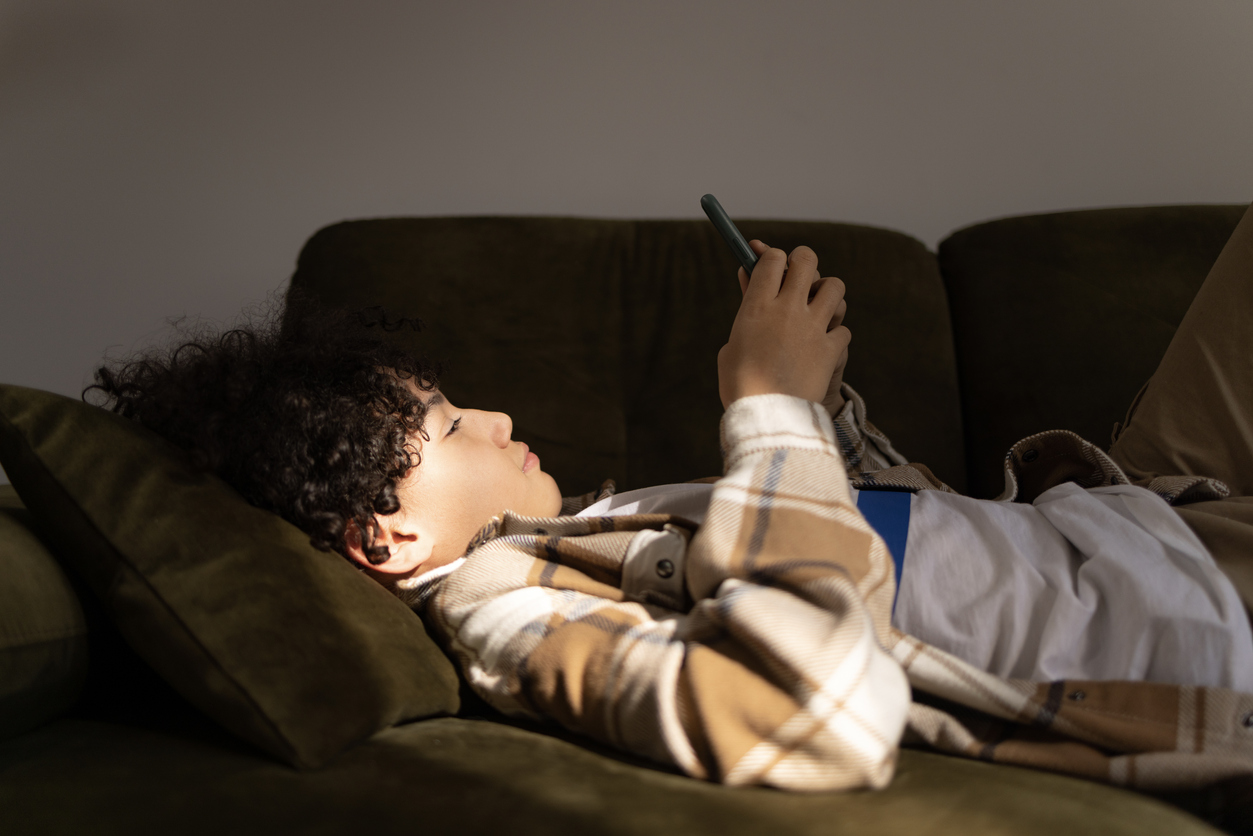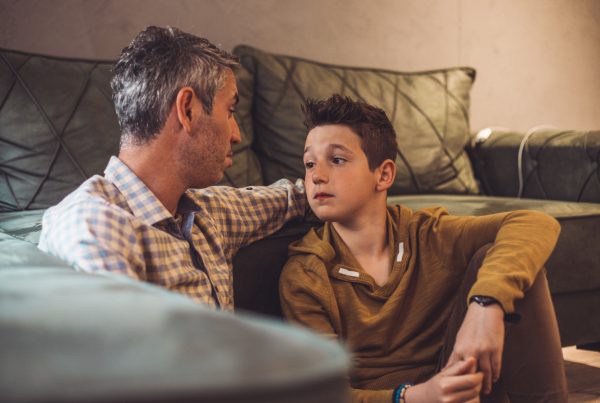When it comes to screen time and digital living, the cat is out of the bag – and there is no way to go back. Teens today will grow up in an internet age and will be expected to participate in what has essentially become another vector for human life. All age groups today spend some portion of their lives in a virtual world, whether on social media or in smaller online communities.
This has its advantages and disadvantages – but for teens especially, there seems to be a dangerous uptick in feelings of depression and anxiety correlating to the meteoric rise of the Internet. Can screen time explain why teens today seem to struggle with an overall lower psychological well-being than previous generations?
The Extent of Screen Time
Screen time statistics may have peaked around COVID-19, but they have not gone down much since then. Teens spend upwards of 9 hours a day on their screens, while the global average among people between the ages of 16 and 64 has gone up to 6 hours and 37 minutes.
While the overall growth in screen time among the general population has only increased modestly since 2013 – by a grand total of 18 more minutes a day – the growth has been more drastic among younger demographics.
But what does this ultimately mean? How do screens impact anxiety? The research here is still quite young, and the results aren’t conclusive. Some studies point to a definite correlation between increases in screen time and an increased rate of depressive diagnoses. However, screen time was also found to correlate with socioeconomic factors, meaning poorer households usually spent more time online. In other words, it’s easy to pick a correlating factor and attribute a rise in anxiety to it.
But today’s teens are also more politically engaged and increasingly nihilistic, having gone through multiple record-breaking recessions while facing an increasingly competitive market, lower wages, the looming threat of AI and its impact on creative labor, and rising academic pressure when compared to previous generations.
Screen time may help us quantify just how rapidly teens are willing to escape to digital worlds to help deal with other life stressors. Yet there are two definite factors that are impacted by high screen time and result in increased stress and anxiety: sleep and physical activity.
The Relationship Between Screen Time and Anxiety
Studies from the US, UK, and China have found that increased screen time may result in increased risk of anxiety and depression – one study specifically looked at the relationship between screen time, sleep quality, and physical activity, confirming the hypothesis that increases in screen time can lead to reduced sleep and poorer sleep quality, as well as reduced physical activity. This study also found that the impact on physical activity had a higher impact on stress and anxiety than sleep did.
In other words, increased screen time often means less time spent moving, playing, and exercising, which often contributes to and exacerbates feelings of stress and anxiety in children and teens. This effect significantly worsened during the COVID-19 pandemic, which also increased feelings of anxiety due to social isolation, fear of infection, few face-to-face interactions, and financial distress.
The study also found that increasing or decreasing a teen’s screen time did not necessarily help mitigate their anxiety. Instead, high screen time could be used as an indicator of stresses that might cause or relate to feelings of anxiety and point towards other factors that can help combat teen anxiety, including protective social factors (a robust support system, healthy family relationship, strong presence within the community) and physical factors (more exercise, better sleep quality).
Screen time isn’t always the villain, either. Studies also found that time spent playing with friends online also helped reduce symptoms of anxiety and that socializing online can be helpful in managing stress, whether it’s through video games or social media.
Strategies for Healthy Screen Use
Healthy screen use differs on a case-by-case basis. Screen time itself may not always be a good indicator of a teen’s mental health, but excessively high screen time should give parents a reason to pause and consider if their teen is meeting their other needs, especially their physical needs.
Some teens prefer to socialize online rather than physically and may have a harder time socializing in person due to long-distance friendships or because of conflicting schedules. Your teen’s screen time might not be concerning if they are otherwise managing their academic responsibilities, getting enough sleep, and spending time on physical activities that they enjoy, whether it’s the gym or the outdoors.
If your teen’s screen time is interfering with their health, however, consider instituting a house rule of limiting screen time to one hour before bed. This drastically reduces the impact that screen time can have on sleep and rest and helps your teen better manage stress.
Conclusion
Does screen time contribute to poorer teen mental health? The short answer is yes, partially. It cannot be denied that there are negative effects of extended exposure to social media and online culture.
However, it may also be somewhat of a chicken-and-egg situation. Teens with low markers of self-esteem and existing mental health problems are more likely to spend more time online and are more susceptible to the negative side of social media and the Internet. On the other hand, a robust offline life, social support, healthy family environment, and other protective factors help limit a teen’s screen time and allow them to reap more of the benefits of an online world.
We can’t keep kids off their phones. But we can help address their mental well-being in a way that might limit the negative impact of spending too much time online and help them find experiences worth chasing outside of the digital world. Our residential treatment options at Visions help teens with severe mental health problems digitally detox and spend time focusing on their emotional and physical wellbeing while providing individualized treatments for depression, anxiety, personality disorders, and teen substance use. Get in touch with us today to find out more.








